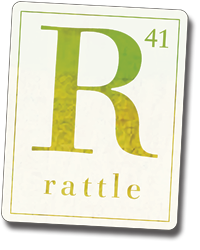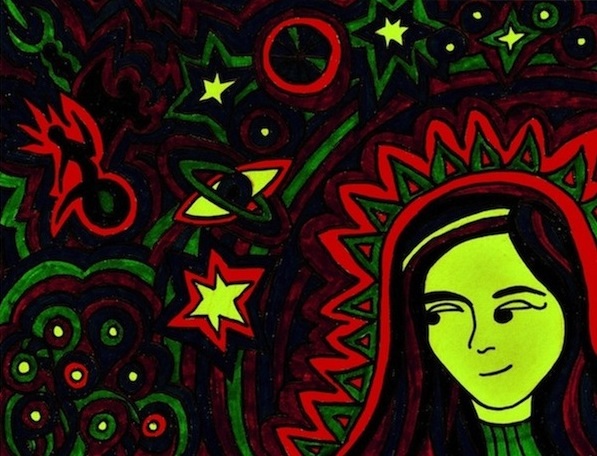 Karen J. Weyant has written a fantastic (and perceptive) review of Brackish. I'm flattered and honored by Weyant's words, which reinforce a belief I've long held about writing: it's a great thing to be read. It's a better thing to be understood. From the review: Through personal narratives and stories told from the past, readers watch a young boy growing up to come to terms with his place in this world. The landscape found in this collection is so vivid that when I was done reading, I could smell paper mills and fish. I could taste the salt of the ocean. I could hear music, a folksy hum that is not quite in tune. I could feel a fishing line between my thumb and fingers, a thin line tugging me, pulling me back in. Many thanks to Weyant for these kind words, and many thanks to Rattle for publishing the review. Check out Weyant's website here: http://thescrapperpoet.wordpress.com/about/ Be sure to check out Karen Weyant's poetry here: http://thescrapperpoet.wordpress.com/read-a-poem-or-two/ Also, you can purchase her chapbooks Stealing Dust (Finishing Line Press) and Wearing Heels in the Rust Belt (Main Street Rag).
1 Comment
 Poet, novelist, and critic Michael Meyehofer (poetry editor at Atticus Review) shows some love to Brackish in the new issue of Rain Taxi. I am very appreciative of this insightful review. I'm a huge fan of Meyerhofer's poetry. His book Blue Collar Eulogies is just fantastic. But his words about Brackish gave me pause. He understands my work better than I do. And, as I Tweeted the day I read the review: it's a great thing to be read. It's a blessing to be understood. Much thanks to Michael and to the fine folks at Rain Taxi. From the review: The poems in Jeff Newberry's Brackish balance grittiness with restraint, taut imagery with dark humor. the result is an intoxicating lyrical energy about as far removed from pretension and sermonizing as one can get. The Sundress Best of the Net online anthology is now live. Featuring some great poetry by Eduardo Corral, Elizabeth Ashe, and Wendy Xu, this year's publication features fiction by James Valvis (among others) and nonfiction by Peyton Marshall (among others). The beautiful cover image is by Rhonda Lott.
Contributing journals include Blackbird, Flycatcher: A Journal of Native Imagination, and Waccamaw: A Journal of Contemporary Literature, all perennial favorites of mine. An interesting and heated conversation took place on my Facebook page a couple of days ago after I posted this message:
Holy cow. I just some ink on a rejection from a top tier journal. Very nice. It's rare that a rejection makes me feel good, but this one did. I won’t go into the specifics of the conversation nor will I name the journal, but I will say that the vehemence and anger displayed in the conversation didn’t surprise me. There are a lot of poets writing today, and there are a lot of journals out there featuring many different kinds of aesthetics. Some poets struggle to find an audience. Other poets seem touched by the poetry gods and become well-known very quickly. I’ll be honest: it’s hard not to be jealous when I see poets whom I’ve known a long time publishing their third and fourth book and getting featured in The Southern Review, Paris Review, and Ploughshares (for example). I want that kind of readership, too. I want that kind of audience for my work. And I want the respect of my peers. [Edited to add: I ultimately want to write well-crafted poems. History can decide if they're 'great.'] Perhaps, too, I’ll confess, that I’m trying to build a career. “Careerism” is a nasty word in poetry circles. It carries a stink with it that keeps lots of artists at a distance. Indeed, some poets I’ve met even hold that to think about a “book” of poems as opposed to a single poem reveals (in me) an ugly need to be known. I disagree. There’s nothing wrong with a writer building a career. For some reasons, however, I’ve found that poets in particular bristle at this notion. The reasons are probably varied, and I can only guess at a few, and I think those reasons have something to do with money. Is poetry somehow more “pure” that prose? Does the lack of money associated with poetry indicate that the genre is somehow immune from the marketplace of ideas? Make no mistake: I do believe that capitalism hurts art. One cannot reduce a work of art to its monetary value any more than one can measure the affect a work of art has on a viewer or reader. At the same time, U.S. poets live in this system. Furthermore, many of us are academics, too, and our careers as writers are entangled (for better or for worse) with our careers as teachers. My poetry publications have a direct effect upon my teaching career—I teach composition, mainly, not creative writing (for the record). This fact sometimes troubles me—well, to be honest, this often troubles me. Still, I understand that this is how things are. However, building a writing career is most certainly not why I started writing. I started writing at first just to express myself. Like most kids, I felt strange and awkward, and writing (songs and stories at first) gave me an outlet to try to understand my place in the world. I decided to pursue writing in school because I couldn’t imagine a life that didn’t place writing at the center of what I did. And now, though my writing career has become a part of my teaching career, I don’t sit down thinking, “Okay, that tenure review is coming up. Let me compose a new poem.” I doubt any writer thinks this way. But to return to that Facebook conversation: my feelings about that rejection had nothing to do with my career as a writer or an academic. I respect that nameless journal greatly. I respect its editors and the writers who publish there. I respect its long history. I would love to be included in its pages, and the fact that the editors took a few precious moments to praise my work and invite a resubmission means a lot to me. I hate to think that the poetry world has gotten so jaded that we all scoff at the notion of publication. Good and bad writing does exist, and publication can be a kind of validation. But at the end of the day, it’s just the page and me, trying to make sense of the world, trying to make meaning with syllables. I’ve had three acceptances in the past two months, an essay to Atticus Review, and poems to both Waccamaw and The Chattahoochee Review. I couldn’t be happier. These are all fine journals, and I’m honored to be included among the fine writers they publish. No bites on my manuscript, however. Of the six or so first book contests I submitted to this year, I’ve heard back from two. The book’s still out, though, so I suppose there is hope.
It’s curious how closely my self-worth is related to publication. As an editor myself, I know what a crapshoot publication can be. Often, editors reject work not because the work is subpar (though that happens a lot), but because the journal has already accepted similar pieces. Of course, editors all have their own aesthetic tastes, as well. Writers should read journals before submitting to them. When I started doing so, my acceptance percentage definitely rose. So, rejection doesn’t have a lot to do with me personally. Still, I find myself down in the dumps after a round of stinging rejection. I suppose that will never change. *** I’m giddily excited about the new American poets U.S. postage stamps. *** The new Cortland Review is ridiculously good. With a feature on Claudia Emerson and poems by Robert Wrigley, David Kirby, David Wojan, R.S. Smith, Mark Jarman, and Kelly Cherry, the issue even features a Music Section with a video of Emerson performing a song with husband and musician Ken Ippolito and a recording of Cornelius Eady singing a song he wrote. *** On new draft this week. That totals four new poems over the past two months. Not bad, but certainly not very good, either. I’m hoping to get back to work on the novel when the spring term ends. Teaching a three courses and advising both the college’s literary magazine and its student newspaper, I have very little time to sustain the energy I need for working on prose. I can steal time here and there to work on poetry, but prose is a different story. This summer, I’ll have the time I need to sit down for a couple of hours each afternoon to write, just as I did last summer. *** Suggestions sought: name some absolute must-read books of poems that have come out in 2012. *** It's National Poetry Month. But (and equally as important, at least for me), it's also Jazz Appreciation Month. What's your favorite jazz album? For me, Miles Davis's Kind of Blue has to be one of my tops picks, but so are Coltrane's Blue Train and A Love Supreme. *** Thanks for reading. Drop some comment love below. If you like what you’ve read, why not “Like” this post on Facebook or share it on Twitter? _ I spent that past Saturday at the Florida Literary Arts Coalition/Other Words Conference at beautiful Flagler College in one of my favorite cities, St. Augustine, Florida, a place that has a wonderful mixture of old world charm and new American kitsch. Along with editors of On Tap, CaKe, and Quilt, I was on a panel addressing literary magazines and journals. Each of us came to the table with different backgrounds and different magazines. For instance, Pegasus (the campus literary magazine I advise) is a small, regional journal while CaKe (FAMU’s literary journal) is nationally-recognized journal of poetry and art. While we all had different backgrounds, we all agreed on one thing: even in the digital age, print journals still matter. And they may matter more now than they ever have before.
A literary magazine isn’t merely a receptacle for words. It’s a manifestation of a community of writers who have come together because they love the written word. Granted, Pegasus is a small magazine; we have a small staff. Fortunately, we are funded rather well, and we an afford press runs of 2000 issues, usually. We’re a non-profit, so we make no money off of our publication. In publishing the magazine, however, we come together as a group of writers and artists who believe that, despite what popular culture keeps telling us, the humanities and the literary arts mean a lot to a large group of people. I can’t express the satisfaction I get each spring when a new Pegasus arrives fresh from the printer. The community created by a literary magazine staff, however is only part of the extended community of the literary magazine audience. When I first started publishing in little magazines in the late 1990’s, a friend said to me, “Who’s going to read that besides you and the people in it?” I remember worrying about that fact. Who would read my work besides other writers? It didn’t take me too long to figure out that writers were the perfect audience for my work. Indeed, I don’t know anyone who appreciates good fiction or poetry any more than writers themselves. The subtle references and allusions writers purposefully drop into their work delight me as a reader. A musical turn of phrase sends me to the internet to Google the poet. Literary magazines and journals allow this kind of extended community to exist. Unfortunately, the term literary is ideologically loaded. For some (many?), the word may conjure images of gate-keeping academics blowing pipe-smoke on the unfortunate plebe who deigns to enter their safely-guarded world. The word evokes Norton anthologies packed with obscurantist writers and politically-charged canons protected by tightly-knit society of nefarious editors. And certainly, these charges probably have some real-world validity. However, in my experience, most of the literary community I know (the Southeast) is an open and inviting, eager for new voices to find their place in the ever-long symphony. Meetings like the Gulf Coast Association of Creative Writing Teachers Annual Conference and the Florida Literary Arts Commision/Other Words Conference are manifestations of these communities. In addition, the community of writers in the blogosphere and on social networking sites is an extension of (and in many cases, its own) the literary community. At the conclusion of our panel at FLAC, Michael Rumore, the Editor-in-Chief of Quilt, made what I thought was a startling claim. He said that he thought of Quilt as an organization/community and that the magazine itself was secondary. I was a little taken aback. I’ve always argued that the reverse is true. However, after my visit to the conference and after hearing from all the different literary magazine editors and advisors at the conference, I think that Quilt’s editor just might be right. A magazine (print or online) is a manifestation of community. Without a community of writers and artists, a magazine cannot exist. Why print journals? Why not just navigate everything to the web? The answer is simple: a magazine’s design goes far beyond how it looks on the page. The texture of pages, the size of the journal, the font, the white space: all of it is a Gestalt. I don’t devalue the role of online literary magazines; I think that journals like Waccamaw, Hangman, storySouth, and The Hobble Creek Review are doing amazing things and publishing fantastic writers. Those journals reach an audience that a print journal may never reach. At the same time, however, I argue that a printed journal is greater than the sum of its parts and that in a world that seems obsessed with transitory trends in fashion and pop music and television, it’s a tangible manifestation of what matters and what’s beautiful. A printed journal is a distilled moment, a frozen pocket of time. And here’s to hoping that, despite what some are prophesying, I don’t think they’re going anywhere any time soon. |
O for a muse of fire, Archives
March 2015
Categories
All
|

 RSS Feed
RSS Feed

